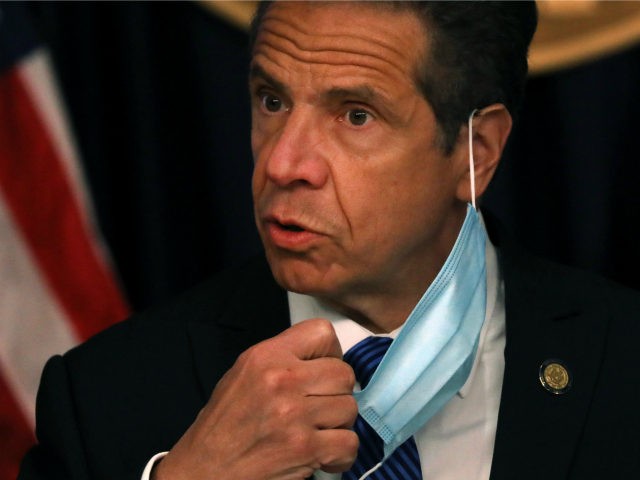The U.S. Supreme Court on Wednesday announced it is granting injunction relief to houses of worship by declaring that Democrat New York Gov. Andrew Cuomo’s coronavirus restrictions placed on religious gatherings violates the Constitution’s guarantee of the free exercise of religion.
“Members of this Court are not public health experts, and we should respect the judgment of those with special expertise and responsibility in this area,” Justice Neil Gorsuch wrote in the 5-4 decision. “But even in a pandemic, the Constitution cannot be put away and forgotten. The restrictions at issue here, by effectively barring many from attending religious services, strike at the very heart of the First Amendment’s guarantee of religious liberty.”
“It is time — past time — to make plain that, while the pandemic poses many grave challenges, there is no world in which the Constitution tolerates color-coded executive edicts that reopen liquor stores and bike shops but shutter churches, synagogues and mosques,” Gorsuch wrote.
The case, Roman Catholic Diocese of Brooklyn, New York v. Andrew M. Cuomo, Governor of New York, is linked to another challenge to Cuomo’s coronavirus lockdown of houses of worship, Agudath Israel of America v. Cuomo, represented by two synagogues, an Orthodox Jewish organization, and two individuals.
Chief Justice John Roberts sided with three liberal judges in his dissent, according to the New York Times:
In a dissenting opinion on Wednesday, Chief Justice Roberts said the court had acted rashly.
“Numerical capacity limits of 10 and 25 people, depending on the applicable zone, do seem unduly restrictive,” he wrote, adding, “It is not necessary, however, for us to rule on that serious and difficult question at this time.”
“The governor might reinstate the restrictions,” he wrote. “But he also might not. And it is a significant matter to override determinations made by public health officials concerning what is necessary for public safety in the midst of a deadly pandemic. If the governor does reinstate the numerical restrictions the applicants can return to this court, and we could act quickly on their renewed applications.”
The SCOTUSblog website explained what was at issue in the decision:
Whether the provisions of Executive Order 202.68 by Gov. Andrew Cuomo (D-N.Y.) that limit in-person “house of worship” attendance to 10 or 25 people, but allow numerous secular businesses to operate without any capacity restrictions, violate the free exercise clause; and (2) whether the courts below erred in concluding that Jacobson v. Massachusetts and South Bay Pentecostal Church v. Newsom require the application of a deferential, rational-basis review in all cases challenging government action taken in response to a public health emergency, even when fundamental rights such as free exercise are at stake.
President Donald Trump’s third Supreme Court justice to be seated on the High Court, Amy Coney Barrett, voted with the majority.
Follow Penny Starr on Twitter

COMMENTS
Please let us know if you're having issues with commenting.